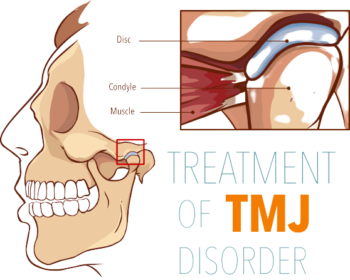 Pain and stiffness in the jaw, face, or neck may indicate temporomandibular joint disorder (TMJ Disorder or TMD). It is not uncommon for people to experience discomfort in the jaw joint or surrounding muscles at some point in their life. Sutra Dental Spa offers advanced treatment options that can safely and effectively relieve TMJ Disorder symptoms for many patients. Our highly-experienced San Diego dentist, Dr. Jimmy Wu, will evaluate your concerns and assess your condition. If you are diagnosed with TMJ Disorder, Dr. Wu will create a personalized treatment plan for your unique needs.
Pain and stiffness in the jaw, face, or neck may indicate temporomandibular joint disorder (TMJ Disorder or TMD). It is not uncommon for people to experience discomfort in the jaw joint or surrounding muscles at some point in their life. Sutra Dental Spa offers advanced treatment options that can safely and effectively relieve TMJ Disorder symptoms for many patients. Our highly-experienced San Diego dentist, Dr. Jimmy Wu, will evaluate your concerns and assess your condition. If you are diagnosed with TMJ Disorder, Dr. Wu will create a personalized treatment plan for your unique needs.
What is TMJ Disorder?
The temporomandibular joint is located between the upper and lower jaw. If the cartilage of the joint breaks down, or if the joint is affected by teeth grinding, imbalance, arthritis, a misaligned bite, or other factors, it can ultimately cause a number of symptoms that can affect your day-to-day life and result in progressive discomfort.
Symptoms of TMJ Disorder
There are many signs that can indicate a problem with the temporomandibular joint, but it is not always apparent that your symptoms are caused by TMJ Disorder. It is important to contact your dentist if you are experiencing any of the following symptoms so that you can have a comprehensive oral evaluation:
- Headaches
- Pain in the neck, shoulders, and/or back
- Pain in the face and jaw joint area
- Popping, clicking, and/or grating sounds in the jaw joint
- Locking of the jaw
- Tired facial muscles
- Ear ringing (tinnitus)
- Difficulty talking, chewing, and/or yawning
- Vertigo (dizziness)
- Numbness in arms, hands, and/or fingers
- Swelling in the side of the face
TMJ Disorder Treatment Options
Pain relief from TMJ Disorder can often be accomplished with advanced treatment methods. To prevent symptoms of TMJ Disorder from worsening, Dr. Wu may recommend the following remedy options:
- Personalized oral appliances (e.g. night guards) to reduce pressure on the jaw joints or realign the bite
- Muscle relaxants or anti-inflammatory medications
- Exercises for the jaw muscles and neck
- Restorative dental procedures
- Orthodontic solutions to realign the bite and reposition the teeth and jaw
- Oral surgery
During your consultation, Dr. Wu will thoroughly go over your treatment options. He will decide the best course of action based on the severity of your symptoms.
Frequently Asked Questions About TMJ Disorder
Below, you will find answers to some of the more frequently asked questions about TMJ Disorder. If you would like to learn more, or if you would like to schedule an appointment with Dr. Wu to determine whether you may be suffering from this condition, please reach out to our dental team today.
Is TMJ Disorder common?
Yes. In fact, it is more common than you might think. Some estimates place the number of patients diagnosed with TMJ Disorder at around 35 million here in the United States. That breaks down to approximately 1 in 12 people in the U.S. The condition also appears to be much more common in women.
How will I know if the symptoms I’m experiencing may be caused by TMJ Disorder?
As noted above, many of the symptoms of TMJ Disorder may not seem like they could be associated with a problem affecting the temporomandibular joint. This can make it difficult for a person experiencing them to draw the connection. An oral evaluation with our dentist can help determine if your symptoms may be related to TMJ Disorder. There are also some things you can do at home that may provide some clues. Here is a quick self-test that may help:
- First, open your mouth slowly and widely, then close.
- Then repeat the action, looking closely to see if you can tell which side of the teeth (the right side or the left side) come together first.
- If you find that one side of the teeth is coming together before the other (and you are experiencing jaw clicking, headaches, or other symptoms associated with TMJ Disorder), then this could possibly be an indication that the condition is present.
Please note that this kind of self-test is by no means a thorough, conclusive evaluation of whether you are suffering from TMJ Disorder. To make that determination, a full examination will be necessary. Dr. Wu can review your symptoms and take a look at your oral structures for signs of problems with the temporomandibular joint. If you are diagnosed with TMJ Disorder, he will go over your treatment options and create a customized plan designed to address the condition.
Will surgery be necessary?
While oral surgery may be indicated in some severe cases of TMJ Disorder, many patients can often benefit from other treatment modalities. These options may include simple jaw and bite therapies, restorative dentistry or orthodontic procedures that can provide better balance between the jaws, a customized oral appliance, or medication. The best treatment for your needs will depend on your symptoms, your unique oral anatomy, and other factors. If you are diagnosed with TMJ Disorder, Dr. Wu will explore the ideal options for your particular case and talk with you about which treatments may be most beneficial for your needs.
What can happen if TMJ Disorder is left untreated?
Many of the symptoms associated with TMJ Disorder can progressively get worse and lead to pronounced effects on an individual’s livelihood if the disorder goes undiagnosed and/or untreated. This is one reason why it’s so important to be evaluated for TMJ Disorder and, if diagnosed, begin treatment for the condition.
If you think you may have TMJ Disorder, please contact us today to schedule a consultation with Dr. Wu.




 Before
Before
 After
After